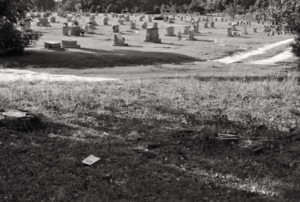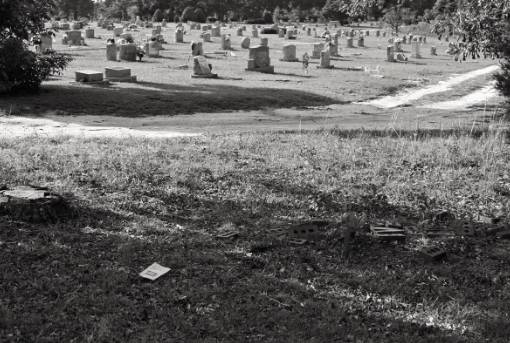 I backed out the door in early Winter 2021, fumbling with my purse, wrestling with my keys, and trying to maintain some semblance of composure, while waving at my friend Adrienne who had arrived to pick me up to go to Food Lion for groceries. In a town whose population is less than 3,000, and being quarantined because of COVID, a trip to the store was a treat. As I walked toward the car, I noticed a piece of paper waving at me, fluttering ever so slightly along one edge. It was enticing but, I did not wave back nor did I pick it up. Which is odd because I am not one to leave trash. But my mind said, ‘leave it’ and I obliged.
I backed out the door in early Winter 2021, fumbling with my purse, wrestling with my keys, and trying to maintain some semblance of composure, while waving at my friend Adrienne who had arrived to pick me up to go to Food Lion for groceries. In a town whose population is less than 3,000, and being quarantined because of COVID, a trip to the store was a treat. As I walked toward the car, I noticed a piece of paper waving at me, fluttering ever so slightly along one edge. It was enticing but, I did not wave back nor did I pick it up. Which is odd because I am not one to leave trash. But my mind said, ‘leave it’ and I obliged.
Sometime in early 2018, I visited Adrienne and was impressed by the little town. Its small size was a plus. It was in Robeson County, the ancestral homeland of the Lumbees and other Native American tribes—the Tuscarora and Cheraw. It was also very diverse, being one of a small percentage of counties in America that are majority minority in population. Adrienne is Lumbee and had already begun schooling me about their culture. The town was about as close as I could get in a rural area that was similar to Atlanta, Georgia in terms of diversity. And while I will always love the Emerald City with its endless treescapes and social offerings, Hotlanta’s traffic and congestion had gotten the better of me and I had been wanting to leave the city for at least 5 years.
I visited Adrienne and strolled about her property with its huge live oaks and swamp nearby. Her yard bordered the swamp and all manner of birds big and small visited there. I asked her about the little brick house on the hill. “It’s for sale. It’s been on the market for years. Nobody wants to live next to the cemetery,” she replied. ‘I sure wish I could buy it’– a fleeting thought traveling as quickly as a gust of wind. Like the wind, the thought lingered. Not gusting but caressing my inner spirit.
I would call Adrienne, about this or that but would always ask if anyone had bought the house. Later that year, someone did. ‘Oh well’, I thought. ‘Move on.’
One day the owner and Adrienne bumped into one another while walking through the cemetery. The owner expressed her desire to move. She wanted to rent the house for a year and then sell it. I began to cling to the belief that the house was the opportunity for me to move, to have my own space and spread out. Not to mention that I had been diagnosed with major depression. I wanted to go to the country, and this was not only an opportunity but a Gift of Challenge.
People were dropping like flies from COVID. While I experienced no deaths in my immediate family, the daily death count reminded me of growing up through the Vietnam War. Every night there was a body count, mostly men from war. This time it was a virus war that was after elders and those compromised and anyone else it could latch onto. Like HIV-AIDS, it moved without discrimination, taking all those who did not move with caution. It still amazes me that over 500,000 people died, and we still battle. In the midst of all that, I moved back to North Carolina. It was scary.
I arrived in North Carolina late 2020 excited and exhausted. I rode up with my daughter and my two cats. Cassie meowed the whole way. When we finally spilled out of the car, I could not wait to see the home that I’d rented sight unseen. Adrienne was waiting with the movers, who arrived a short time before we did. “Welcome home!” she said. “This is YOUR house!”
As I said earlier, the city cemetery is right next door. When I exit my back door, I am looking at gravestones as far as the eye can see. There are two graves that are very close to the house and they belong to the former owners, Elizabeth (Liza) and Jeffrey (Jeff) Autry.
Adrienne iterated that the Autrys were a delightful couple. When she first moved into the neighborhood, the Autrys arrived on her front porch with a large bucket of blueberries and a book of poetry by Mr. Autry. They had a lovely garden that was bursting with vegetables and flowers. I enjoyed the stories. As an artist and writer, I especially liked the fact that Mr. Autry was also a writer.
Shortly after I moved in, a mockingbird perched itself on the chain link fence and started to sing. I named the bird Mr. Autry and imagined that he was singing to the universe about how the world is such a magical place, made nicer if one could fly. It seemed that every time I walked on the porch, he was there, perched on the fence singing his heart out.
A week or so later, I walked out onto the back porch, and when I went to step down into the yard, I saw a dead mockingbird, lying just beyond the steps. I looked over at the Autry’s graves, overcome with sadness. I was sure that one of the cats had caught the bird, but it didn’t make any sense because I have older cats that rarely hunt. They are more content to have me as “ “Meow”/Servant” to bring them food and water.
I turned the bird over to examine it and was surprised to find that the bird’s throat was slit. It was a clean cut. While my cats have nice sharp claws and teeth, they would have made a mess with the kill. This bird looked like it had been cut by a surgeon.
I believe in signs, always have. When I saw the bird with its throat cut, it reminded me of ebo, the word for sacrifice in Ifa, a West African Yoruba religion. Ifa traveled across the Atlantic Ocean during the Atlantic slave trade and spread throughout the African Diaspora. Vodou in Haiti, Santeria in Cuba, Candomble’ in Brazil — are all belief systems that were born out of the Yoruba religion, and syncretized with Catholicism. In these systems, animals are offered as sacrifice. Unfortunately, this practice has been transmogrified by western culture and Hollywood as savage. A friend from Nigeria remarked that everyone knew the babalawo’s (priest in Western terms) house in the community and would gather there for ebo. Those who attended would often leave with one of the animals, likely a chicken or a portion of goat. In my mind, Mother Nature had performed ebo on the mockingbird, although I did not know how or why. I kept looking for signs.
I was afraid that the mockingbird was Mr. Autry, but he later returned, singing away as if nothing happened. Later that day I noticed that the paper had moved again to the outside of the gate. It was staring at me, daring me to pick it up. I refused. My head had told me to leave it there.
My Aunt Julia’s birthday gathering was coming up and I was so excited to travel to Southern Pines even though it was only 26 miles away. By this time, it was spring. We had gone through Covid, survived white supremacy (again) and vaccines were flying into arms. I had gotten both shots and was eager to visit family. I looked forward to the drive through Hoke County and Raeford where George Floyd was born, and then to Southern Pines, which is a sizable town from when I was young. Azaleas, Dogwoods, Red Buds, ornamental Pear and other flowering trees and shrubs were in full bloom.
I got dressed that morning in April and headed out the back door to borrow Adrienne’s car. But no sooner that I approached the door, I noticed that the piece of paper had made its way through the chain link fence and inside the gate. It was not waving, or blinking. It was just there, white and worn on the edges facing me on one side and the Autry’s graves on the other. It demanded that I pick it up. Now.
I walked over to the piece of paper and stared. I was aware of time moving and I needed to get on the road. I bent over and picked it up. I turned it over and over slowly, my mouth wide open and there it was—the paper from Mrs. Autry’s grave. It had been there since 2018 when she passed away. I held the piece of paper in my hands, realizing that what Adrienne had said about the house being “my house” was true.
The paper rode with me to my aunt’s house and I had a ball hanging out with cousins. Her house is always full of love and babies. At 85, she cares for her great great-grandson who weighs a hefty 30 pounds plus. I call him Boodah. Upon returning home, I gingerly carried the fragile piece of paper into the house. I placed Mrs. Autry on my ancestral altar. After all the travel to deliver the message that I was “home”, she certainly deserved a place there.
Lynn Marshall-Linnemeier

There are no comments
Add yours